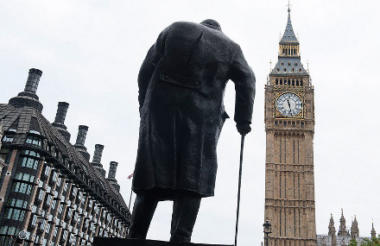What is happening with the government’s manifesto commitment to provide staff with three days’ volunteering leave, asks David Ainsworth.
Two years ago yesterday, the Conservative party committed itself, in its manifesto, to giving all staff in the public sector, and in large companies, three days' leave each year to volunteer for charity.
Since then, almost nothing appears to have happened to make that pledge a reality. There has been no indication from any of the usual sources that the government is making progress on it, although there has been a disavowal of responsibility from the Office for Civil Society.
The minister responsible for volunteering, Rob Wilson, is not leading on this policy. Instead it sits with the Department for Business, Energy and Industrial Strategy.
As it’s the anniversary of the commitment, we asked BEIS what has happened to it, and the answer was brusque, to say the least. BEIS said it still expects to introduce proposals “in due course”.
This phrase, “in due course”, is a very specific piece of government press officer terminology, which basically tells you that they plan to be deliberately unhelpful. Usually it suggests that something is going to be done, but the press officer cannot get the policy officer to tell them when. Occasionally it means something is imminent but the minister has not decided when to announce it. Any which way, it is a commitment that the government intends to stonewall.
Trying to glean some information around the edges, there is some indication that employer-supported volunteering, or ESV, is still on the agenda. Infrastructure bodies believe it is still a live policy. But it is clearly not a priority, and will need input from more than one department. And it is likely to be shoved aside by Brexit, like everything else in Whitehall.
So at present, then, the three-day pledge is like Schrodinger’s cat. It exists in a strange half-life within a government building. In quantum terms, three-day volunteering is both alive and dead at the same time.
Of course, the way this policy has been parked is not reassuring. We already know that the government has gradually got less enthusiastic about the sector, and this is arguably just another sign of charities’ low priority status. Although it should be noted that the leadership of the Conservative Party is radically different from when this policy was developed, so perhaps the position will change.
Why BEIS?
It’s clearly not ideal that this policy sits inside BEIS. Growing volunteering is not a core task for this department, so it is likely to assign a low priority to the proposals, especially if they might prove contentious.
It’s not clear what support it has. Business leaders, who are much closer than charities to the centres of power, might seem potentially likely to lobby against something which will reduce their workforce efficiency. But on the other hand, some companies – particularly those with high skilled workforces, are getting behind ESV as a way of providing staff with motivation and new skills.
Also, if you want to develop a volunteering policy that works for charities, BEIS is not the ideal place for it to sit. The worry is that the department will underestimate the structure and planning needed to actually provide volunteering which is useful for charities. A sudden release onto the market of thousands of volunteers, all painting fences and clearing weeds, is arguably of limited utility, and could present a considerable cost to the sector. It would be reassuring to know that there was some form of coordination and organisation involved.
One bright point is that the House of Lords has put volunteering back on the agenda, not least with a call for trusteeship to have the same status as school governorship and magistrature, which require employers to grant reasonable time off. This report must be responded to by government, so unlike the three-day volunteering pledge, there is a timescale for action.
So what is going to happen to three-day volunteering? Will it ever arrive, or is this blog like Waiting for Godot? A lot of words about something which never comes.
Quite often policies like these are shot ducks. They waddle around for a while waiting to die, until the party that proposed them is swept out of power, and their successors tear up any unfinished commitments.
But the feebleness of the Labour Party makes things interesting here. No one can credibly expect Jeremy Corbyn to get into power, so the Tories have things to themselves. Can they really go on into the next parliament, refusing to either take action or admit that they never will?
Related articles











